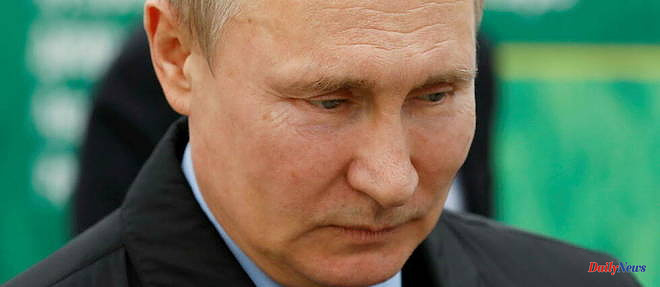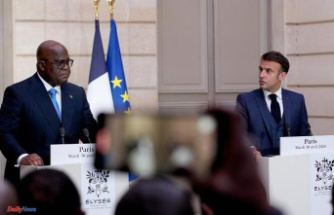International sanctions targeting Moscow for its offensive in Ukraine "may" have "negative" consequences in the "medium term" for the national economy. This is what Vladimir Putin said on Wednesday, March 29, during a meeting with the government broadcast on television. In recent months, the President of the Russian Federation had nevertheless praised his country's adaptation to this new situation.
It is therefore a great first. Never, until then, Vladimir Putin had publicly admitted that the rain of international sanctions, affecting many sectors of activity, including that of hydrocarbons, affected the national economy.
"Returning to a growth trajectory should not make us slack off," he said, calling for "guaranteeing Russia's economic sovereignty". Because, if "unemployment is at its lowest level", at 3.6%, and if, "at the end of March, inflation will fall below 4%", after having soared to almost 20% in the spring Last, Putin cautioned, "That doesn't mean that all the problems have already been solved. »
Finally, he insisted on the Russian financial system which "should play an important role in meeting the needs of exporters", before asking for the replacement of "Western companies that were working in this niche". At the end of February, he had already called on the Russian oligarchs to repatriate their funds to support the national economy.
Vladimir Putin then turned to Xi Jinping. At a summit in Moscow last week, the two men said they wanted to "deepen" Russian-Chinese economic relations. But many observers saw it as a sign of Russia's growing reliance on China, whose economy has largely captured Western-sanctioned Russian gas and oil exports.
These new outlets have enabled Russia to partially compensate for lost markets in Europe. But its dependence on China and India allows them to be in a position of strength and to negotiate prices downwards.












